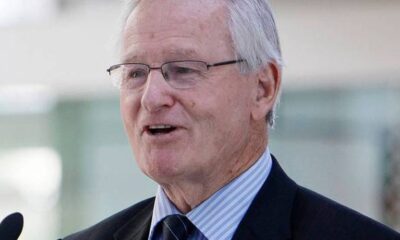Business
Examining Teacher Pay: Claims and Counterclaims Uncovered

Recent discussions about secondary school teachers’ pay in New Zealand have sparked a significant debate, highlighting a mix of claims and counterclaims. As the government grapples with education funding, various stakeholders have weighed in on the potential impact of salaries on the teaching profession.
The New Zealand Teachers’ Union has asserted that teacher salaries are insufficient, warning that the profession may struggle to attract and retain talent. According to the Union, a competitive wage structure is essential to address ongoing teacher shortages, particularly in high-demand subjects. They argue that the current average salary of approximately $60,000 NZD does not reflect the level of expertise required for the role.
Conversely, Education Minister Jan Tinetti has countered these claims, suggesting that recent salary increases have been significant. In March 2023, she announced a pay rise that could see teachers earning up to $80,000 NZD depending on their experience and qualifications. Tinetti emphasized that the government is committed to improving pay and working conditions for educators, stating, “We are investing in our teachers because we know they are key to our students’ success.”
Despite these assurances, skepticism remains among educators. Many teachers express concerns that while the increases are welcomed, they do not sufficiently address the broader issues of workload and job satisfaction. The Union has pointed to survey results indicating that more than 60% of teachers feel overwhelmed by administrative tasks, which detracts from their teaching time.
The government’s response to these concerns has been mixed. While they acknowledge the need for improved working conditions, they stress that budget constraints limit the extent of potential salary hikes. The Ministry of Education has indicated that further investigations into teacher workloads will be conducted to find feasible solutions.
As the debate unfolds, both sides continue to present their perspectives. Advocates for teachers argue that without livable wages and manageable workloads, the quality of education will inevitably decline. Opponents maintain that substantial budgetary allocations across various sectors mean that teacher salaries must be balanced with other critical educational needs.
In conclusion, the discourse surrounding teacher pay remains contentious. With ongoing negotiations and discussions, stakeholders in New Zealand will need to find common ground to ensure that educators are supported adequately. The outcome of this debate will likely have lasting implications for the education system and the future of teaching in the country.
-

 Sports1 month ago
Sports1 month agoNetball New Zealand Stands Down Dame Noeline Taurua for Series
-

 Entertainment1 month ago
Entertainment1 month agoTributes Pour In for Lachlan Rofe, Reality Star, Dead at 47
-

 Sports1 month ago
Sports1 month agoSilver Ferns Legend Laura Langman Criticizes Team’s Attitude
-

 Entertainment1 week ago
Entertainment1 week agoNew ‘Maverick’ Chaser Joins Beat the Chasers Season Finale
-

 Entertainment2 months ago
Entertainment2 months agoKhloe Kardashian Embraces Innovative Stem Cell Therapy in Mexico
-

 Sports2 months ago
Sports2 months agoGaël Monfils Set to Defend ASB Classic Title in January 2026
-

 World3 months ago
World3 months agoPolice Arrest Multiple Individuals During Funeral for Zain Taikato-Fox
-

 Politics2 weeks ago
Politics2 weeks agoNetball NZ Calls for Respect Amid Dame Taurua’s Standoff
-

 Entertainment3 weeks ago
Entertainment3 weeks agoTyson Fury’s Daughter Venezuela Gets Engaged at Birthday Bash
-

 Sports3 weeks ago
Sports3 weeks agoHeather McMahan Steps Down as Ryder Cup Host After Controversy
-

 Entertainment3 weeks ago
Entertainment3 weeks agoTyson Fury’s Daughter Venezuela Gets Engaged at Birthday Bash
-

 World2 weeks ago
World2 weeks agoNew Zealand Firefighters Plan Strike on October 17 Over Pay Disputes



















